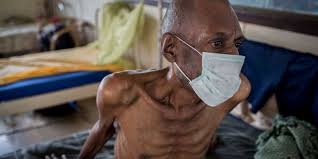Tuberculosis (TB) continues to be a serious public health problem in Uganda. Although the disease is preventable and curable, many people still suffer due to delays in seeking medical help, limited awareness, and challenges in the health system.
Kisa, a health worker in Uganda, points out a common problem:
“In Uganda, there is a poor culture of seeking medical attention. People often try herbal remedies first and only go to hospitals as a last resort.”
This delay in getting proper treatment gives TB more time to spread not just within the individual’s body, but also to others in the community.
TB doesn’t affect everyone equally. People with HIV are much more likely to get active TB because the virus weakens their immune system.
“HIV lowers the body’s immunity. That’s why in HIV clinics, patients are routinely screened for TB they are more vulnerable,” Kisa explains.
This dual burden of TB and HIV is a major reason Uganda still struggles with high TB cases, even though public health campaigns are ongoing.
Uganda uses the BCG vaccine to protect infants from severe forms of TB. While the vaccine doesn’t offer full immunity, it helps prevent the most dangerous cases in children.
Early detection also plays an important role. People with TB symptoms such as a persistent cough, weight loss, and night sweats need to be tested and linked to health services immediately.
TB treatment is available and effective, but it takes time and commitment. Patients must take daily medication for several months, with the dosage adjusted according to their weight.
Treatment is given in two phases:
Intensive phase – to kill most of the bacteria.
Continuation phase – to ensure all remaining bacteria are destroyed.
If patients stop treatment early or take the wrong dose, the disease can come back — and may even become drug-resistant.
“Sometimes, we health workers contribute to drug-resistant TB by prescribing an underdose,” Kisa admits.
Despite the many challenges, TB can be completely cured with proper treatment.
“With proper treatment, TB can be completely cured,” Kisa says with confidence.
Uganda must act faster and more effectively to fight TB.
This includes:
Educating the public about early symptoms,
Encouraging people to seek treatment quickly,
Improving medical training and dosage practices,
Strengthening TB and HIV care in clinics.
With commitment from both health workers and the community, Uganda can turn the tide against TB.



